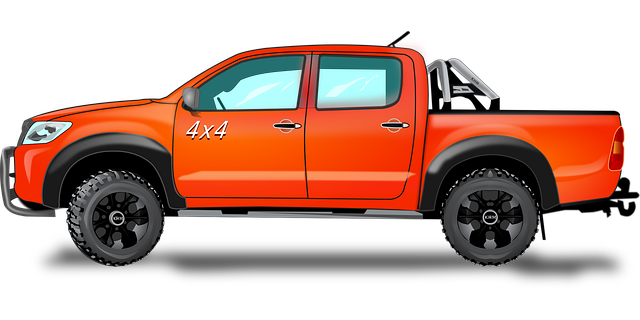RGV (Round Groove Vehicle) wheels enhance receiver hitch stability and safety for diverse industries. Their specialized design aligns with vehicle mounting holes, withstands various terrains, and accommodates different trailer tongues. For optimal performance, follow installation guidelines, invest in quality components, conduct regular inspections, maintain proper alignment, and prioritize safe towing practices like weight distribution, checking blind spots, and driving cautiously in adverse conditions.
“Discover the versatile world of receiver hitches, essential accessories for towing and hauling. This comprehensive guide breaks down everything you need to know about these innovative systems. From understanding their basic mechanics to exploring the pivotal role of RGV wheels in enhancing stability and performance, we cover it all. Learn about diverse hitch types, installation best practices, and crucial safety measures. Optimize your towing experience with our insights, ensuring a smooth journey every time.”
- Understanding Receiver Hitches: A Basic Overview
- The Role of RGV Wheels in Hitch Systems
- Types of Receiver Hitches and Their Applications
- Installation and Maintenance Tips for Optimal Performance
- Safety Considerations When Using Receiver Hitches
Understanding Receiver Hitches: A Basic Overview

The Role of RGV Wheels in Hitch Systems

Receiver hitches are an essential component of towing and hauling systems, allowing for secure attachment between a vehicle and trailer. At the heart of many receiver hitch systems lie RGV (Round Groove Vehicle) wheels, which play a pivotal role in ensuring stability and ease of connection. These specialized wheels feature a unique round groove design that perfectly aligns with the receiver’s mounting hole pattern, providing a robust and dependable interface.
The implementation of RGV wheels offers several advantages. Their precise fitment reduces the risk of misalignment during coupling, which is crucial for maintaining control while towing heavy loads. Moreover, their sturdy construction enhances the overall strength of the hitch assembly, withstanding the rigors of various terrain and transporting conditions. This integration ensures a seamless connection between the vehicle and trailer, enabling smooth hauling and simplifying the overall towing experience.
Types of Receiver Hitches and Their Applications

Receiver hitches are a versatile towing solution, offering a wide range of options for various applications. These hitches are designed to attach trailers or accessories to vehicles, providing stability and security during transport. One popular type is the RGV (Receiver Tube) Wheels hitch, which features a tubular receiver that accommodates a wide variety of trailer tongues. This design allows for greater flexibility in towing setup, making it ideal for those who need to tow different types of equipment.
The RGV hitch is versatile and commonly used in industries such as construction, agriculture, and outdoor recreation. Its ability to accommodate various trailer sizes and weights makes it suitable for transporting heavy machinery, farming equipment, or even off-road vehicles. This type of receiver hitch provides a secure connection, ensuring the safety of both the vehicle and the trailer during transport, which is paramount when tackling tough terrain or hauling substantial loads.
Installation and Maintenance Tips for Optimal Performance

Ensure optimal performance of your receiver hitches with proper installation and regular maintenance. Begin by following the manufacturer’s instructions for a secure attachment to your vehicle, ensuring all bolts are tightly fastened, especially when towing heavy loads. Use high-quality RGV wheels and accessories to enhance stability and durability.
Regularly inspect the hitch for any signs of wear or damage, cleaning and lubricating components as needed. Keep an eye on pin and hitch ball alignment, adjusting as necessary to maintain a smooth connection between your vehicle and trailer. Remember, proper maintenance not only extends the lifespan of your receiver hitch but also guarantees safe towing experiences.
Safety Considerations When Using Receiver Hitches

When using receiver hitches, safety should always be a top priority. With proper installation and maintenance, RGV wheels can provide a secure and stable connection for towing or hauling. However, it’s crucial to ensure that all components are compatible and correctly rated for your vehicle and load. Regularly inspect the hitch for any signs of wear or damage, and always use safety chains or other securing devices as an additional layer of protection.
Additional safety considerations include checking your vehicle’s weight distribution and ensuring that your towing capacity matches or exceeds the combined weight of the trailer or load. Never exceed the rated capacity of your receiver hitch or RGV wheels, and be mindful of blind spots when towing. Always drive slowly and cautiously, especially on winding roads or in adverse weather conditions, to prevent accidents and ensure a safe journey for everyone involved.
Receiver hitches, enhanced by the integral role of RGV wheels in hitch systems, offer versatile applications across various vehicles and scenarios. Understanding their types, installation, maintenance, and safety considerations is crucial for optimal performance and peace of mind while towing or carrying cargo. By integrating this knowledge with the unique benefits of RGV wheels, you can navigate diverse terrains and tasks efficiently, ensuring a secure and reliable experience.



